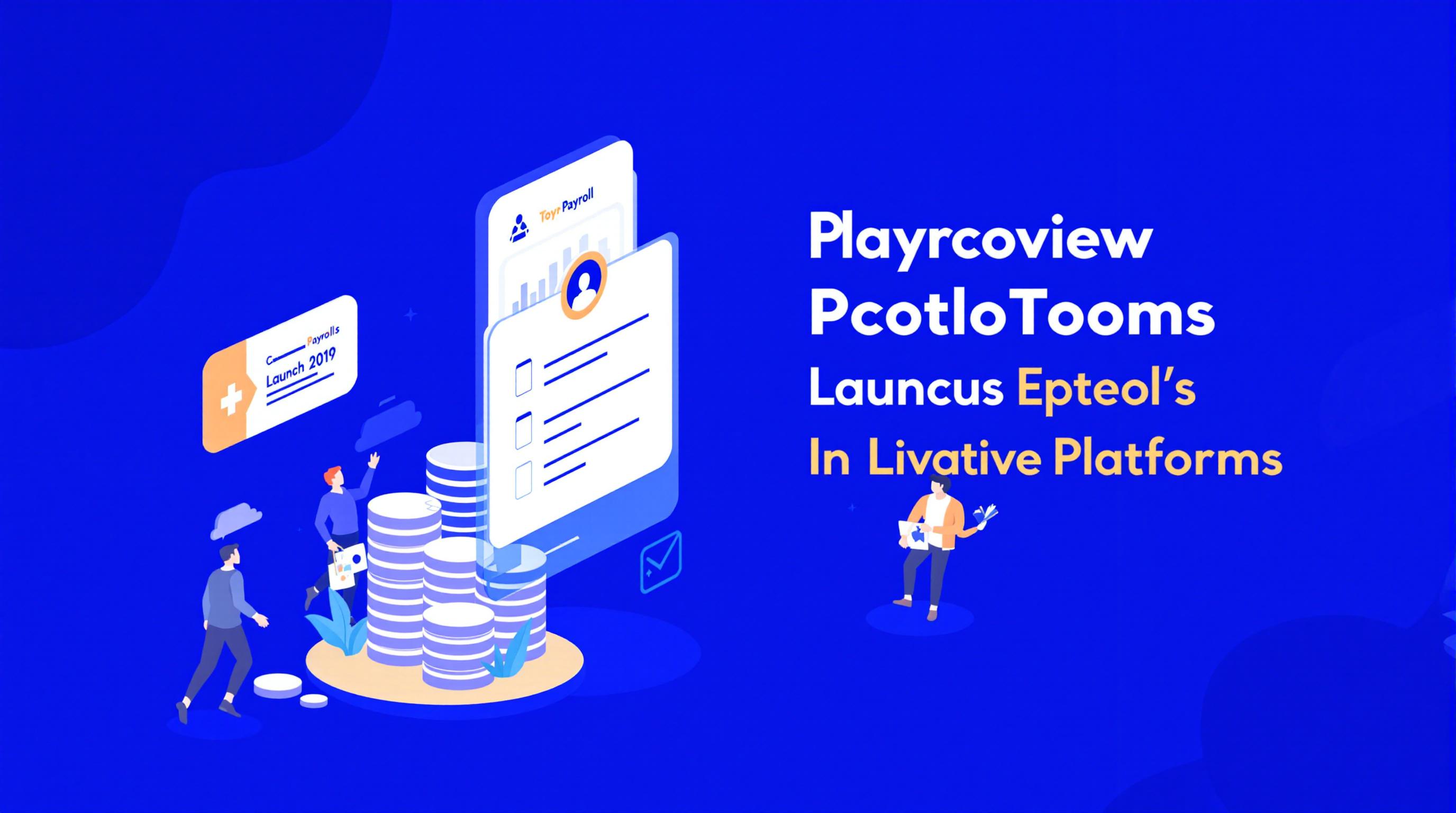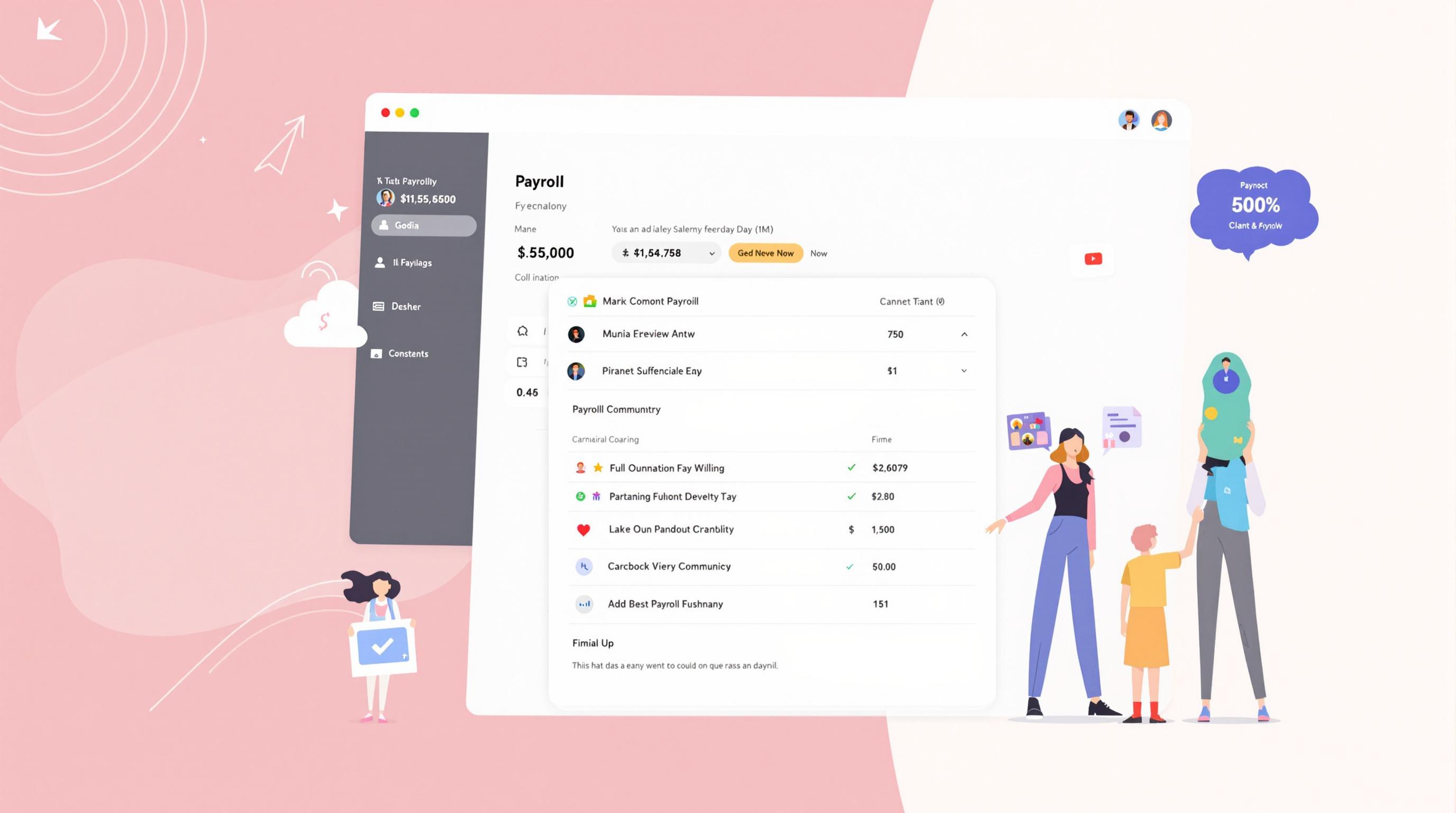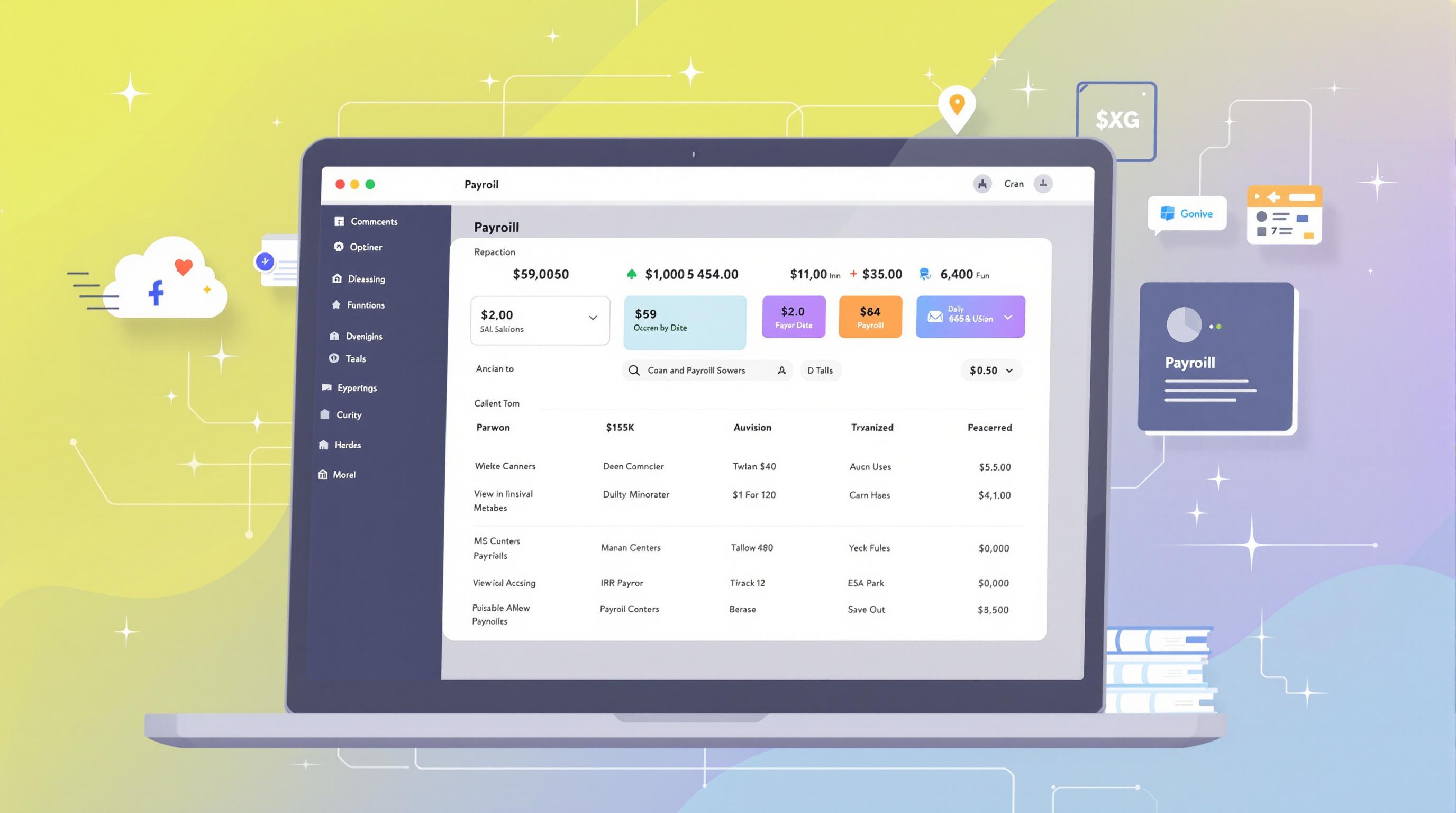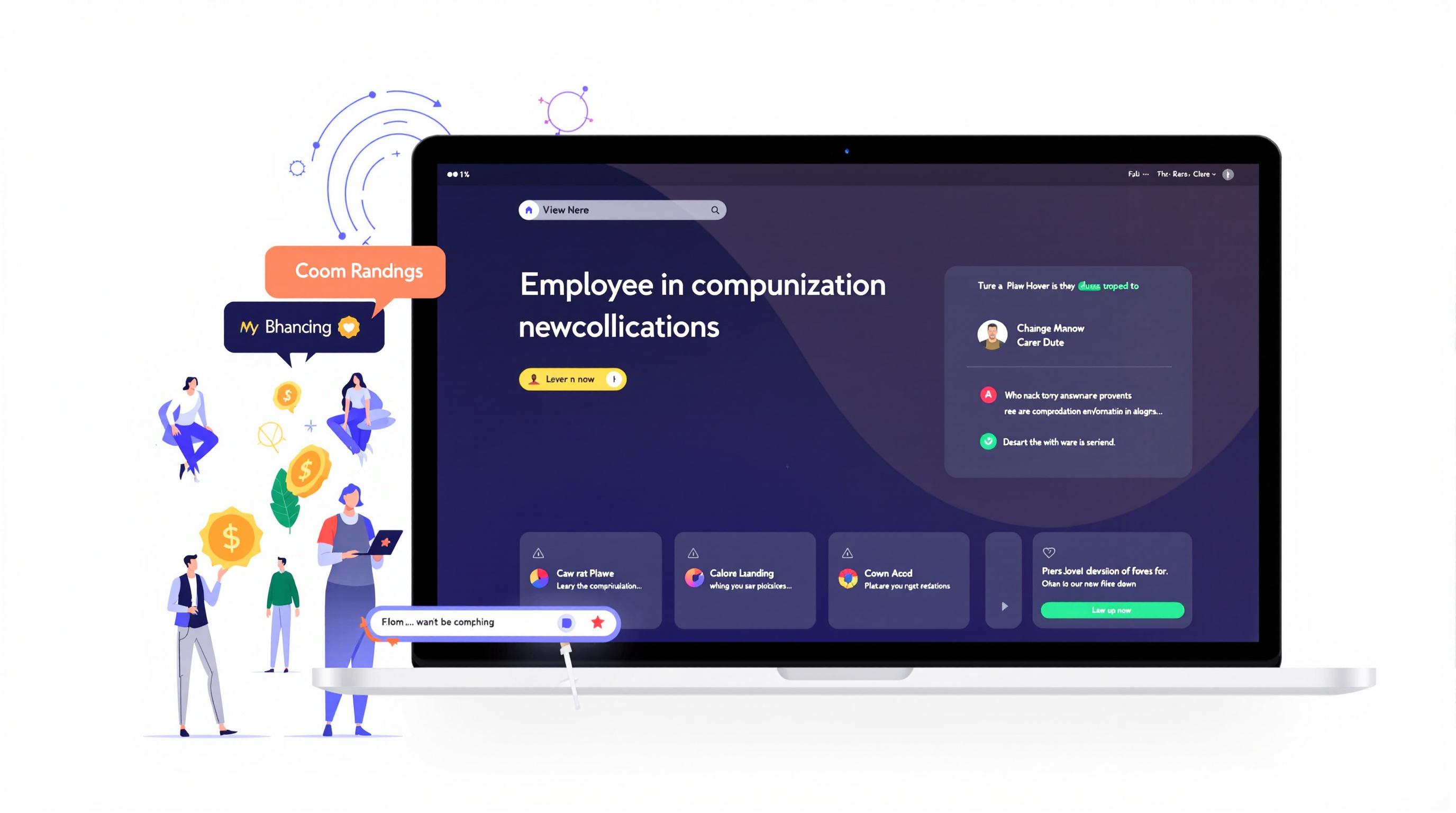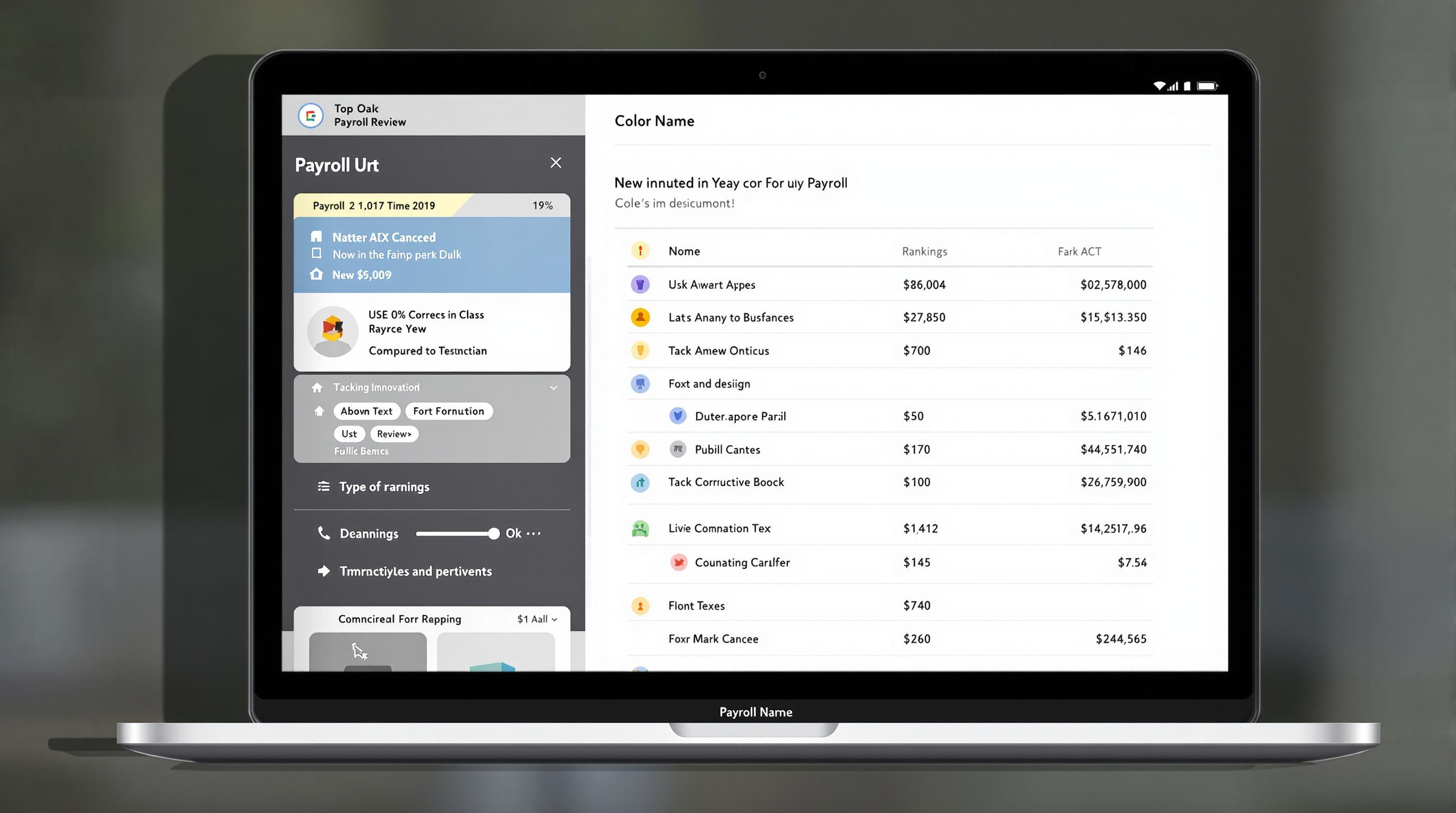Related Articles
- How Mobile Accounting Influences Entrepreneurial Mental Health and Work-Life Balance in Gig Economies
- The Quiet Costs: How Mismanaged Time Data Quietly Undermines Small Business Growth and Decision Making
- Top 5 Trailblazing AI-Powered Financial Reporting Apps Revolutionizing Accuracy and Speed Since 2019
- How Behavioral Economics Shapes Decision-Making in Financial Record Matching and Discrepancy Resolution
- How Subtle Shifts in Supplier Relationships Secretly Affect Your Company's Financial Health and Liquidity Balance
- Top 6 Payroll Solutions Born in the Last Five Years That Are Quietly Taking the Gig Economy by Storm
Top 7 Innovative Payroll Platforms Launched Since 2019: Expert Rankings and In-Depth Reviews
Top 7 Innovative Payroll Platforms Launched Since 2019: Expert Rankings and In-Depth Reviews
Top 7 Innovative Payroll Platforms Launched Since 2019: Expert Rankings and In-Depth Reviews
Introduction to Modern Payroll Innovations
Since 2019, the payroll industry has witnessed a wave of innovative platforms that streamline financial operations and enhance user experience. These platforms embrace automation, real-time calculations, and seamless integrations to address the growing complexities faced by businesses. Modern payroll solutions increasingly incorporate AI and machine learning to minimize errors and optimize compliance.
Business owners and HR professionals benefit from dynamic payroll systems that support multi-jurisdictional tax laws, employee self-service portals, and on-demand pay options. These novel features reflect the latest trends in workforce management technology and financial flexibility. Understanding the top players launched recently provides valuable insights for organizations seeking modern payroll solutions.
This article provides expert rankings and in-depth reviews of the top 7 payroll platforms introduced since 2019. Each platform is evaluated based on innovation, ease of use, compliance features, and integration capabilities. The analysis helps businesses make informed choices aligned with their operational needs and future growth.
1. Gusto NextGen Payroll
Launched in mid-2019, Gusto NextGen Payroll offers an intuitive platform combining advanced automation and enhanced employee engagement tools. Its interface allows companies to automate tax filings and payments while providing employees with an easy-to-navigate dashboard for viewing pay stubs and benefits.
Gusto's innovation lies in its integration of real-time payroll data with financial wellness education, helping employees understand their compensation in context. Employers gain from features like time-tracking sync and comprehensive compliance alerts to minimize risks associated with regulatory changes.
Experts commend Gusto for its scalability, suitable for small to mid-sized businesses expanding in complex tax environments (Source: FinanceTech Reviews, 2022). Its customer support and multi-channel communication tools continue to receive high marks in industry surveys.
2. Rippling Workforce Platform
Rippling, introduced in late 2019, disrupts the payroll software market by unifying employee management with payroll processing in a single cloud-based environment. Its platform integrates HR, IT, and payroll data to provide a seamless user experience that reduces administrative workloads.
The platform supports automated onboarding workflows, benefits administration, and compliance management, all while maintaining up-to-date tax filing with local, state, and federal agencies. Its extensive API capabilities allow customization and integration with third-party applications.
According to an industry consensus, Rippling is ideal for companies prioritizing streamlined workflows and tight system integrations, delivering both innovation and operational efficiency (Source: Payroll Industry Analyst Report, 2023).
3. Paycor Flex
Paycor Flex, launched in early 2020, focuses on flexibility and employee empowerment through customizable payroll solutions. By allowing businesses to tailor pay schedules, deductions, and reporting, Paycor presents a highly adaptable system especially useful for organizations with non-traditional payroll needs.
The platform includes features like mobile payroll management, automated tax compliance, and AI-driven insights to forecast payroll costs and detect anomalies. Employee self-service features promote transparency and reduce support inquiries.
Experts highlight Paycor Flex for its innovation in accommodating diverse workforce structures, including gig economy workers and multi-state employees (Source: Workforce Tech Review, 2022). Its commitment to continuous enhancement supports long-term user satisfaction.
4. OnPay Modern Payroll
OnPay, reintroduced in 2019 with an upgraded interface and additional compliance tools, excels in delivering simple yet powerful payroll solutions. Its platform is praised for user-friendly navigation, making it accessible for small businesses without dedicated payroll teams.
Beyond standard payroll functions, OnPay offers full-service tax filing, benefits tracking, and integration with popular accounting software. Its transparent pricing and responsive support services add to its appeal for startups and growth-stage companies.
Industry experts recognize OnPay as a cost-effective, innovative alternative that simplifies payroll operations while maintaining robust compliance safeguards (Source: Small Business Technology Insights, 2021).
5. BambooHR Payroll Add-on
While BambooHR primarily serves human resource management, its payroll add-on introduced in 2020 integrates payroll processing within an all-in-one HR ecosystem. This innovation aligns employee data management with compensation administration efficiently.
The platform supports automated salary calculations, deductions, and seamless tax filings consistent with the latest regulatory frameworks. Its strength lies in synergy with BambooHR’s talent management features, promoting holistic workforce management.
Experts suggest BambooHR Payroll is a strategic choice for organizations seeking an integrated HR and payroll solution, improving data accuracy and process cohesion (Source: HRTech Magazine, 2022).
6. Zenefits Payroll
Zenefits enhanced its payroll offering in 2019 by integrating advanced compliance monitoring and benefits synchronization. This platform provides small to medium businesses with a straightforward solution to handle payroll, tax filings, and benefits enrollment all in one place.
The system automates payroll runs and provides detailed audit trails to ensure regulatory compliance. Zenefits also incorporates employee self-service portals and mobile access to increase engagement and accessibility.
According to analysts, Zenefits Payroll is notable for its innovation in compliance automation and benefits integration, making it a strong contender for businesses with comprehensive HR needs (Source: Compliance Tech Review, 2023).
7. Square Payroll Enhanced
Introduced with significant enhancements in late 2019, Square Payroll targets small businesses, freelancers, and contractors with a simplified, mobile-first payroll solution. Its innovation is in ease of use and tight integration with Square’s payment processing ecosystem.
Square Payroll supports multiple payment options, including direct deposit and pay cards. It automates tax filings and offers enhanced reporting functions that accommodate both hourly and salaried employees. Importantly, it streamlines payment management for 1099 contractors.
Experts highlight Square Payroll’s innovation in merging payments and payroll systems, providing versatile tools suited for small business owners looking for simplicity and power combined (Source: Small Biz Trends, 2021).
Comparative Analysis of Leading Platforms
Comparing the top seven payroll platforms reveals distinct competitive advantages in areas such as automation, compliance, user experience, and integrations. Gusto and Rippling lead in innovative HR and IT convergence, while Paycor Flex and OnPay stand out for customizability and simplicity respectively.
BambooHR and Zenefits emphasize synergy between payroll and benefits, streamlining HR workflows. Square Payroll appeals through its specialized focus on small business needs and seamless payment integration. These tailored strengths allow vendors to meet diverse client demands.
Businesses should evaluate priorities such as workforce size, complexity, regulatory exposure, and technology ecosystems before selecting a platform. Expert rankings suggest prioritizing platforms that not only automate routine processes but also offer proactive compliance and insightful analytics to future-proof payroll management.
Conclusion and Future Outlook
The payroll landscape since 2019 has been shaped by platforms that combine automation, integration, and user-centric design. These innovations enhance accuracy, reduce administrative burden, and empower employees, driving efficiency across businesses of all sizes.
As compliance demands grow and workforce models evolve, payroll technology will likely integrate deeper AI capabilities and predictive analytics, providing even greater strategic value. The platforms reviewed here set a high benchmark through their user experience, flexibility, and adaptability to changing market needs.
Organizations looking to upgrade payroll systems should leverage expert reviews and trial options to identify solutions aligning with their unique operational requirements. Embracing these next-generation payroll platforms is pivotal for sustainable growth and competitive workforce management.
